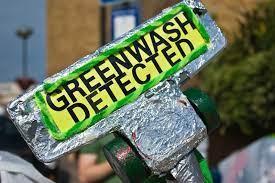Green-Washed Profits: Exponential Rise in Sustainable Investments

Let us put a price on everything. As per a World Economic Forum estimate, nature is worth $44 trillion to the global economy. The New York Stock Exchange has pegged the value of natural resources at $125 trillion annually. And a $30 trillion Environmental, Social and Governance (ESG) market is waiting to be profited from only if you are willing to invest with a conscience. But is the conscience altruistic or purely market-driven?
Commodification of SDGs
The Global Financial Crisis of 2007-08 taught several interesting lessons to the capital market, chief among them not to trust credit rating agencies. Still, the Sustainable Development Goals (SDGs) that provide 17 goals and 169 targets for the United Nations to achieve by 2030 have created a new ecosystem of green products and sustainable investing. Rankings are always questionable for their methodology, inclusion and exclusion. Yet, green indexes have progressively accumulated more companies and products across the clean and renewable energy, ‘smart’ technology and water markets.
Investors today have the choice to invest money in the largest portfolios of private equity, venture capital, debt and blended instruments in the green space. What drives these investors to see such for-profit companies as climate change messiahs?
From traditional philanthropy-based investment to addressing societal challenges driven mainly by patronage to Social Impact Investing and sustainable and responsible investing paradigms, money has come a long way from reducing inequalities to increasing the wealth divide. Investors who profit from sustainability businesses are not first-time share traders but foundations, high-net-worth individuals, family offices, development finance institutions and fund managers. For example, India’s impact investment sector garnered over US$5.2 billion between 2010 and 2016. Today’s asset class has diversified to include green bonds, social impact bonds, development impact bonds, index funds and similar exchange-traded funds.
Climate finance and its manifestations
While the United Nations is trying to nudge stock exchanges to be more transparent and forthcoming on ESG credentials, it is increasingly challenging for companies to become net-zero carbon businesses. In this regard, 2015 was a landmark year for climate change negotiations when 195 countries signed the historic Paris Agreement that aimed for a combined $100 billion corpus to meet the targeted greenhouse gas emission reductions by 2025. It is indeed necessary to scale up infrastructure and maximise resources, but what we see instead is a rapid increase in climate finance models.
The European Union Emissions Trading System follows a cap and trade mechanism of limiting carbon output. The World Bank looks at carbon pricing to ensure polluters are penalised while building on the Green Climate Fund. The going narrative is that developing and least developed countries will be the beneficiaries of these funds. Still, the alternative is equally true: rich companies from developed countries are the ones to supply these technologies. Hence, they will receive the payments from, more or less, the same corpus intended to assist these countries.
Buyer beware may be a general caveat in the sales language, but there are way too many red flags for consumers considering green investments. Here are some: if the company overuses industry jargon on eco-friendliness, advertises using nature-oriented backdrops and deploys environmental compassion jargon. If it exhibits safety awards of questionable integrity and makes claims using scientific buzzwords such as its products are 100% biodegradable, without proof. Such forms of manipulation and misinformation should serve as a call for whistleblowers to ensure corporate accountability.
ESG has become an eyewash for sustainable investments in the financial world. Companies provide inaccurate or incomplete disclosures while sending the false message that they are engaged in responsible supply chain practices. In essence, it has become a public relations facade, with no signs of reduction in companies’ bottom lines. On the other hand, fund managers are complaining that impact investing is being affected by green-washing.
Grammar of profit
Greening investments use the capitalistic language of self-interest and maximising wealth, even if their stated intention is to make the world more hospitable. Attracting private capital, irrespective of its source, allows the green market to disguise itself. It appears to share the plan of environment protection, except it uses new instruments. Terms such as market to book ratio, risk-return preferences, revenue models, immediate outcomes, long term gains and overvaluation, are becoming standard vocabulary, no different from any other stock trading systems. With environment-related controversies, scandals and regressive regulation becoming louder by the day, negative activism by shareholders—creating situations for the share value to fall, which can then get capitalised—has only made the sustainability index complex and arbitrary.
While financial literacy is still low and the danger of private virtual/cryptocurrencies entering the regulated markets sounds an alarm, investments are becoming even more susceptible to market risks. In January, the RBI governor said in a lecture that a compliance culture in companies should ensure adherence to integrity, ethics and codes of conduct, not just laws, rules and regulations.
The future lies in development for all. However, if development-related activities allow the rich to profit by appearing prosocial while disruption and displacement continue, then the priorities of sustainable finance are mistaken. It calls for serious soul-searching on how we look at money, the environment and intergenerational equity. Sadly, of these, only equity is understood, and that too, from a financial point of view.
The author is assistant professor, St Joseph’s College of Law, Bangalore. The views are personal
Get the latest reports & analysis with people's perspective on Protests, movements & deep analytical videos, discussions of the current affairs in your Telegram app. Subscribe to NewsClick's Telegram channel & get Real-Time updates on stories, as they get published on our website.
























